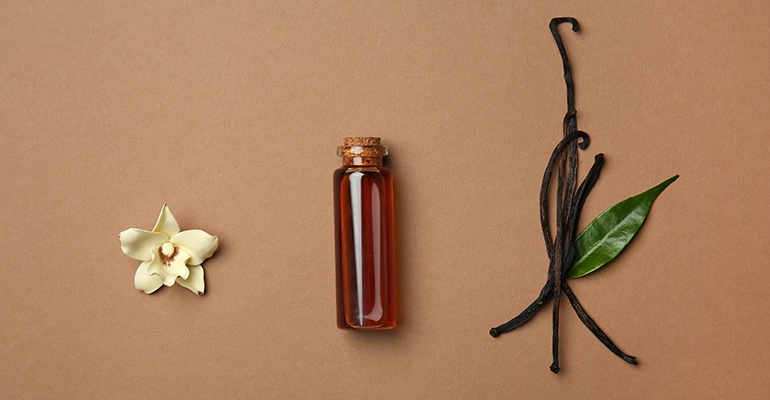News
French government survey reveals cases of vanilla fraud
14 Mar 2022
Vanilla is a prized flavouring whose high price has prompted the production of fraudulent substitutes throughout the supply chain. Recently, a French investigation revealed examples of retailers and manufacturers using artificial vanillin and fraudelently claiming it was real vanilla.
According to an investigation by the General Directorate for Competition Policy, Consumer Affairs and Fraud Control (DGCCRF), one in four retailers is not complying with the regulations that determine whether a flavour may be labeled as vanilla. As a result of its investigation, the results of which were published in January this year, the French government issued 36 warnings, filed three criminal reports and imposed several fines.

Several samples sold to consumers were made up of spent vanilla pods (a co-stream leftover after aromatic substances have been extracted from vanilla that is devoid of flavour and odour). Another sample consisted of beans dipped in a vanilla flavoured aroma. Other flavours labelled 'natural vanilla extract' contained flavourings derived from biotechnological processes of more than 90%.
Consumers take a bleak view of artificial ingredients
When it comes to vanilla, the cost of clean label is high. Vanilla is the second most expensive flavouring in the world, right behind saffron, and between 2015 and 2019, vanilla bean costs skyrocketed 500%. As a result, it is not liberally used. Only about 1% of vanilla flavouring is actually from the vanilla plant, according to NCC Food Ingredients.
However, the flavour remains such a popular choice with consumers that many manufacturers have long turned to artificial substitutes to flavour their products.
While this may be an economic necessity for manufacturers, many consumers take a dim view of artificial ingredients in today’s market, viewing synthetic extracts as something to be avoided. This consumer attitude makes artificial vanilla a tough sell and adds added importance to labels that announce they contain real vanilla. This particular combination of pressures on manufacturers to feature real vanilla in their products has resulted in French authorities uncovering an expansive case of vanilla fraud within the country.
Already the demand for vanilla is outpacing the supply, and the market is only expected to continue to grow. According to a report from Zion Market Research, the global vanilla market sat at $510 million (€465.9 million) in 2018 and is expected to reach $735 million (€671.37 million) by 2026.
Manufacturers strive for clean label vanilla alternatives
Ethyl vanillin and aromatic caramel are among the alternatives to real vanilla bean extract that are widely used. But this is not the only option. There are other sources of artificial vanillin that are made from petrochemicals that are not considered clean label.
However, manufacturers are developing newer solutions to offer a cheaper alternative to real vanilla while still delivering a clean label option. In Norway, ingredients company Borregard makes vanillin from pine trees and European ingredients producer Eurovanille recently purchased Solvay’s Vanifolia formulated product line, which features an industrially-produced vanillin that is considered to be natural under EU regulations.
The expectation for clean labels is rising among consumers and has begun to shift to a wider concern of how ingredients affect the environment. The relationship between food choices and climate impact has been coming to the forefront in recent years, and according to Innova Market Insights Top Trends for 2022 report, this cause and effect relationship has prompted a call for even greater transparency from brands for all the ingredients they use.
